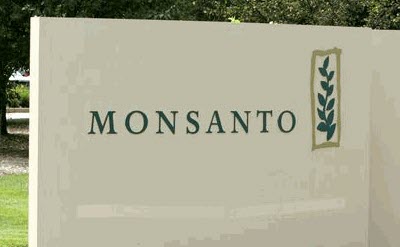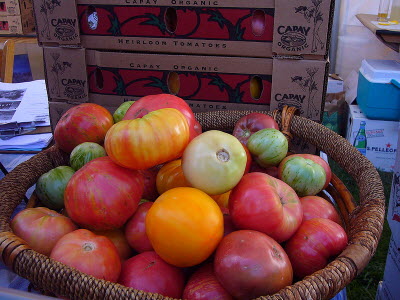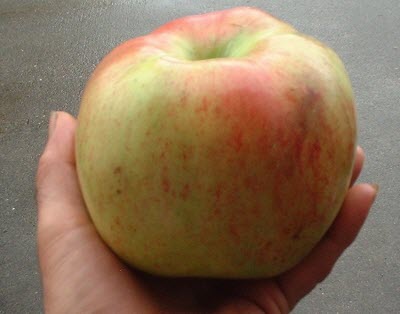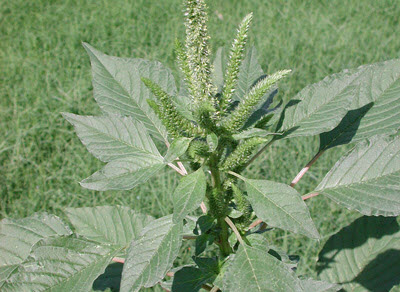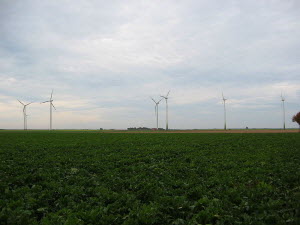After a lengthy legal battle the U.S. Department of Agriculture decided to completely deregulate Monsanto’s genetically engineered sugar beets.
|
|
|||
|
Monsanto’s genetically modified soybeans to be used for cooking oil containing lower levels of saturated fats and higher levels monounsaturated fats were approved last year by U.S. regulators. Yet, while Monsanto prepares for product launch, important safety questions remain unanswered. Faced with another government agency’s failure to follow the laws, advocate groups had to resort to the courts yet again, making the judicial system the last stopgap for even the most sensible environmental policy. Gold rush is a thing of the past. The name of the new game is “land grab”, where governments of developed nations and multinational companies are leasing or buying large tracks of land across the African continent and other countries around the world in a feverish rush to grow crops for food and bio-fuel. Recently, Sec. of Agriculture Tom Vilsack compared biotechnology and sustainable agriculture to two sons, for whom he declared equal love. Read on to learn why biotech has in fact been the agency’s favorite “son.” The organic food sector grew last year by nearly 8 percent, far out-pacing the overall stagnant U.S. food industry and providing new jobs. Consumers continue voting organic with their dollars. Conventional and organic farmers and environmental groups filed a lawsuit challenging the USDA’s decision to permit the unrestricted commercial release of genetically engineered alfalfa. A California Appeals Court reversed a lower court’s ruling which would have required the destruction of genetically modified sugar beet seedlings planted in September 2010. The usual and unusual politics surrounding the deregulation of genetically engineered alfalfa. In less than a month, USDA has approved for unrestricted growth GE alfalfa and partially deregulated GE sugar beets. Now, it deregulates GE corn for biofuel production with no environmental impact study of novel proteins it contains. Yesterday, USDA’s Sec. Tom Vilsack announced that genetically engineered alfalfa, that has been modified to withstand repeated application of Monsanto’s RoundUp herbicide, will be completely deregulated nation-wide, without any restrictions. A Federal Court ordered the removal of genetically modified beet seedlings. After USDA and Monsanto appealed, the Ninth Circuit Court of Appeals is delaying the removal until a hearing that was rescheduled for February. GMOs have started to proliferate in Africa and other developing nations. The growth of GMOs in developing nations, however, brings to the forefront deeply rooted issues of social injustice. USDA was asked to approve a genetically modified apple variety that keeps from oxidizing and going brown when cut or damaged, but this is produce nobody wants. While Monsanto shelved its research on genetically modified wheat in 2004 amid broad opposition from consumers and growers, it’s back at it again. Superweeds are invading fields across the globe. Before we start looking blaming farmers, however, careful attention must be paid to government agencies and seed companies and how the two partner-up to foster the conditions that lead to superweeds. AHPIS announced its response to a recent federal court decision which banned the planting of Monsanto’s GM sugar beets until the agency conducts an EIS. Many, however, see the agency’s response as an attempt to circumvent the court’s ruling. The next generation of biotech crops are designed to express alleged nutritional benefits. However, advertising such foods as “healthy” would only confuse the consuming public. From the company that brought you plastics and rubber (DuPont) comes a genetically modified soybean that is altered to exhibit alleged health benefits. The claims by biotechnology corporations that genetic engineering increases crop yields, and is therefore necessary to feed a growing world population, have also recently been refuted. Failure to Yield, a report by the Union of Concerned Scientists published in April 2009, is the first to evaluate in detail the overall yield effect of genetic engineering. Specifically, the report concludes “no currently available transgenic varieties enhance the intrinsic yield of any crops. The intrinsic yields of corn and soybeans did rise during the twentieth century, but not as a result of GE traits. Rather, they were due to successes in traditional breeding.” Monsanto has crops resistant to glyphosate. Bayer is selling cotton and soybeans resistant to glufosinate, another weedkiller. Monsanto’s newest corn is tolerant of both glyphosate and glufosinate, and the company is developing crops resistant to dicamba, an older pesticide. Syngenta is developing soybeans tolerant of its Callisto product. And Dow Chemical is developing corn and soybeans resistant to 2,4-D, a component of Agent Orange, the defoliant used in the Vietnam War. The first genetically modified bananas were recently harvested in Australia. But there is little reason to celebrate as, like other GMOs, genetically modified bananas bring to the table the same unanswered questions and concerns about their impact on health and the environment. On March 16, 2010, a California District Judge denied plaintiffs’ request to halt the planting of GE sugar beets. The Court’s decision, however, left open the possibility of a ban, which is to be determined at the permanent injunction hearings in July. After nearly a two-hour hearing yesterday, the U.S. District Judge Jeffery White reserved judgment as to whether a preliminary injunction, that would prevent the production or planting of genetically modified sugar beet seeds, should issue. Both parties, however, expect a quick decision as farmers will soon be ready to plant their crop. |
|||
|
 |
|||

